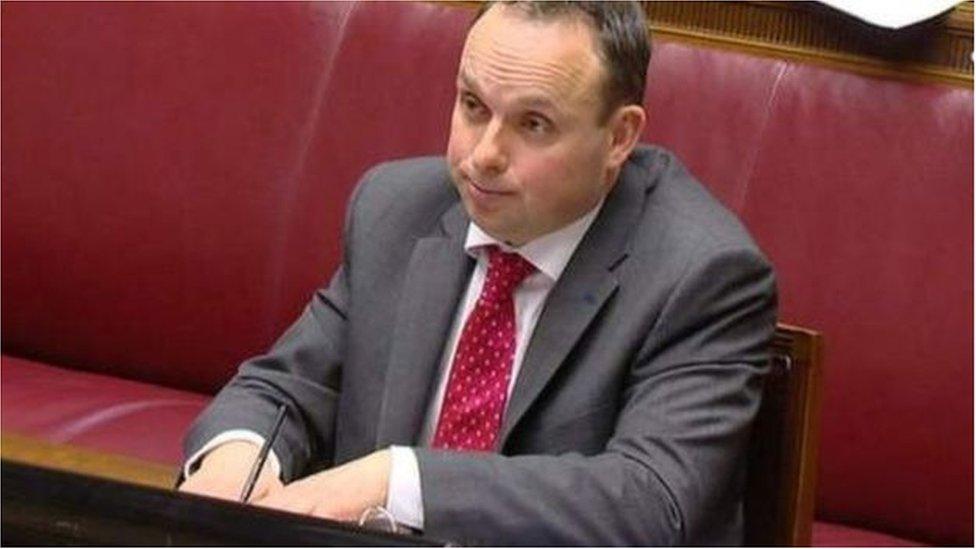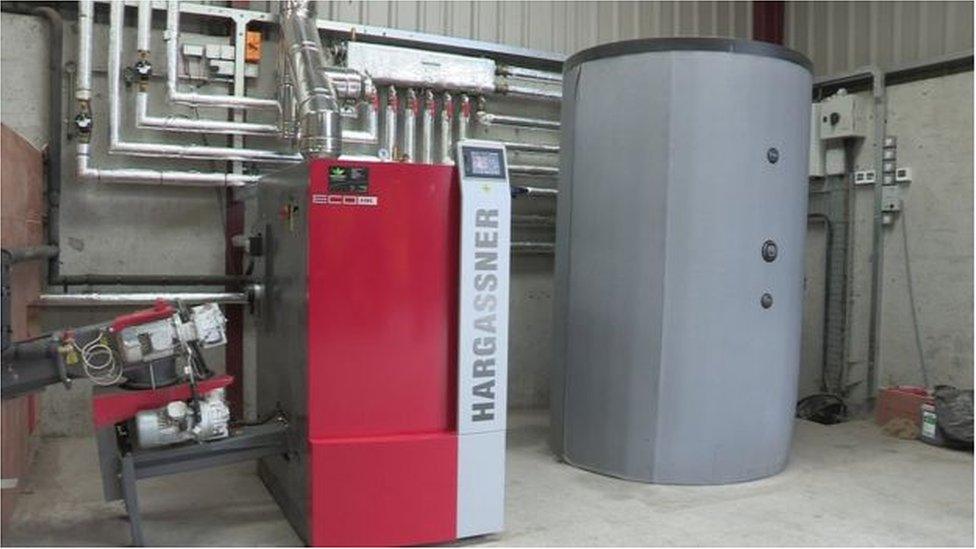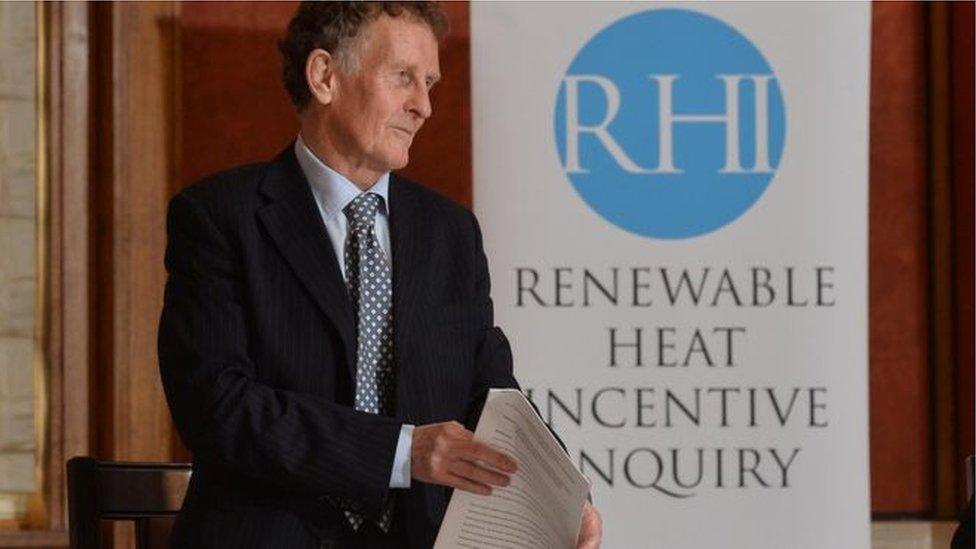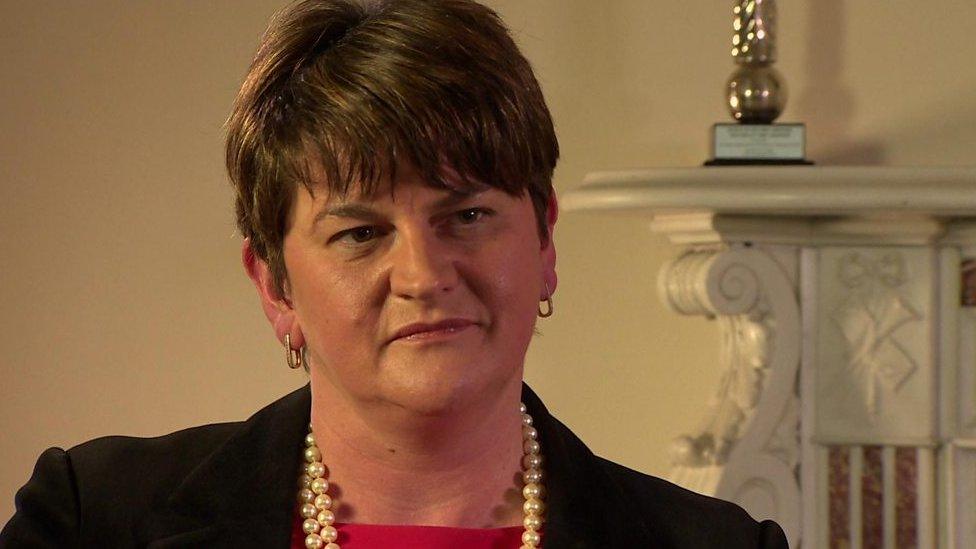RHI inquiry: Key decision 'should not have been taken'
- Published

Mr Crawford had not been given the consultants' report and had not asked to see it
A key decision which "set the direction of travel" for a flawed green energy scheme ought not to have been taken, a public inquiry has been told.
Arlene Foster picked the incentive scheme on the basis of a submission containing inaccurate information.
Her special adviser Andrew Crawford accepted that he had not "protected his minister" because he had not queried the information she had been given.
RHI offered financial incentives if firms switched to renewables.

Overly-generous subsidies meant the costs of the scheme spiralled out of control
But the fuel actually cost far less than the subsidy they were receiving, effectively meaning that users could earn more money by burning more fuel.
The public inquiry into the scheme began in November 2017.
"In hindsight I should have, I wished I had, I didn't have the time," Mr Crawford said.
The submission had been presented by Fiona Hepper, a civil servant Mr Crawford said he and Mrs Foster regarded as "capable".
Best cost
But it did not accurately reflect the content of a report by consultants setting out scheme options.
It was not attached to the submission.
It was put to Mr Crawford that Mrs Foster believed it was part of his SPAD (special advisor) role to read such technical information.
In June 2011, Mrs Foster was asked by officials to choose between a number of different options including an ongoing incentive scheme and a grant scheme.
She was told the incentive scheme - which later became RHI - provided the most renewable heat at the best cost.
But the consultants report showed that the grant scheme was much more cost effective and produced more heat.
Mr Crawford had not been given the consultants' report and had not asked to see it.
'Start again'
The submission to the minister clearly stated that it was based on a draft of the final report and that there were "a number of issues" in it to be addressed.
It turned out that there were 56 issues still be resolved.
Asked what his advice to the minister would have been had he known that, Mr Crawford said: "The advice would have been to start again."
He said given the issues left to be resolved there should not have been a submission to the minister for a decision or a discussion about it.
Mr Crawford was asked why he didn't ask to see the report.
He said he expected the submission to be an accurate reflection of the technical report on which it was based.
"We never expected a submission and a report to be at such odds with each other," he said.
But inquiry chair Sir Patrick Coghlin said it had been a brand new scheme involving large sums of public money.

The RHI public inquiry is being chaired by Sir Patrick Coghlin
"but if you don't mind me putting it in these terms - you say blandly `I expected the report to comply with the submission` but you were told in black and white that there were a number of issues to be addressed."
Mr Crawford said the decision to proceed was just a "staging post", leading to a public consultation on the proposed scheme.
And he said that when he was presented with a submission he did not expect to have to "interrogate the paperwork behind it" to make sure it was accurate.
Inquiry counsel Joseph Aiken said the decision that June had "set the direction of travel" on RHI.
He suggested that in order to "protect the minister" on the decision she was about to take, Mr Crawford ought to have established the facts.
- Published12 April 2018
